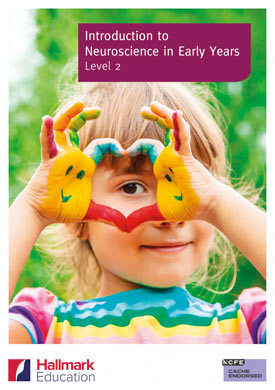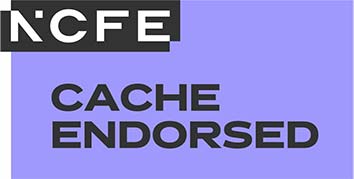We’re very fortunate that many of the qualifications we support with our learning materials are currently funded by the Education and Skills Funding Agency and/or the European Social Fund (subject to meeting the funding criteria at the bottom of this page). This means that adults can enrol on some of our courses for free and gain a nationally accredited NCFE CACHE qualification upon successful completion. Funding is routed through FE colleges and various independent learning providers, and we are working in partnership with some of these to promote the offer and help individuals and organisations to access the courses.
One such example is our new brand new course – the NCFE CACHE Level 2 Award in an Introduction to Neuroscience in Early Years.
This important and thought-provoking course combines two highly topical themes within child development and early years provision – neuroscience and self-regulation.
Neuroscience is an exciting field of research that has huge significance to anyone who supports babies or young children. This course is designed to give learners a gentle introduction to the subject, and to share with them some of the remarkable insights it has given us in terms of how the infant brain develops, and how this is affected by a range of external influences.
For example, advances in technology mean we can now see the damaging effects that stress, trauma and a lack of adult care and affection can have on the developing structures of the brain and how these can detrimentally affect learning and behaviour. Conversely, we can also see the powerful and positive effects of affectionate and responsive caregiver relationships and of nurturing care environments.

The course also explores the topic of self-regulation in early years. These are a critical set of skills that help children to remain calm, attentive and able to deal with powerful emotions such as fear, anger and sadness. Children are not born with these skills; they develop them over time when they are supported to understand their feelings and actions by caring and responsive adults. This is one of the reasons why, for the first time, self-regulation has been included as an early learning goal in the new Early Years Foundation Stage (EYFS) statutory framework.
As well as explaining the theory behind the science, this course will provide learners with practical advice in terms of how to promote healthy brain development in the critical first seven years of life, and how they can support children to develop those vital self-regulation skills.
Key features of the programme:
- The course is fully funded courtesy of the Education Skills Funding Agency and/or the European Social Fund.
- It is available to individuals as well as to organisations.
- No need to attend college - study from home. The course is delivered on a distance learning basis over 4 weeks.
- Choice of learning online or via hard copy workbooks. All provided free of charge.
- No end tests – the qualification is assessed by completing the assignments provided.
- Dedicated tutor support provided throughout.
- The qualification is OFQUAL-regulated and are accredited by the awarding body NCFE CACHE.
Funding eligibility criteria:
- Candidates must have been aged 19 or above on 31/8/2022.
- Candidates aged 19-23 must already hold a full level 2 qualification.
- Candidates must currently live in England and have resided there, or within the EU, for the past 3 years.
- Candidates must not be enrolled on another Government-funded programme of study, such as an apprenticeship.
- Please be aware, some regions in England have devolved funding for which we may not have coverage.
- Funding is limited and only available for the remainder of the 2021-22 academic year.
- To cover their costs, colleges may charge a fee to those who enrol and subsequently withdraw from their chosen course. You will be advised of this before being enrolled with a college.



To register your interest, please fill out the form below and one of our enrolment advisers will get in touch to provide you with information, advice and guidance.
To contact us for more information, please click here
